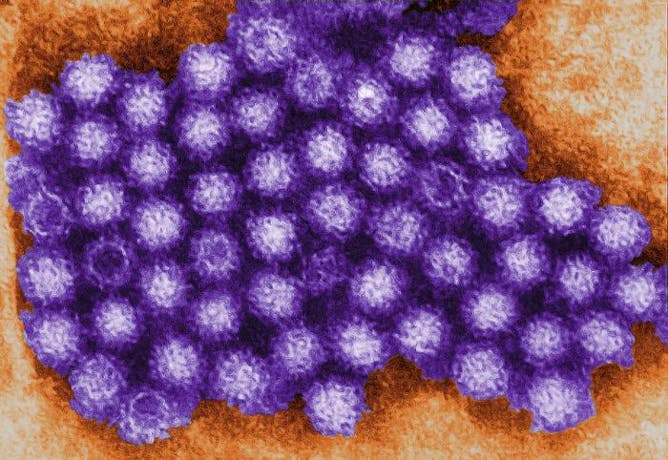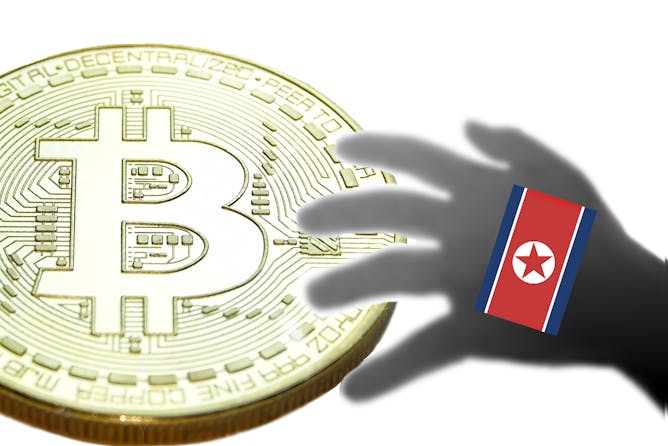Editor's note
|
|
It’s not all fun and games at this year’s Olympics. About 200 people have come down with norovirus, a contagious bug that can cause inflammation of the intestine. Kartikeya Cherabuddi, a physician at the University of Florida, explains what we know about this virus – and why it’s so tough to prevent infections from spreading whenever large groups of people from around the world come together.
The Olympic Games are traditionally seen as promoting peace between nations, and this year’s games are no exception with North Korea making conciliatory signs toward its southern neighbor. Yet, as cyberdefense scholar Dorothy Denning reminds us, North Korea remains – alongside China, Iran and Russia – one of the greatest cyberthreats to the U.S. What’s more, as she points out, North Korea’s cyber army operates very differently from those of other nations.
Fans of American Olympians should also appreciate what they’re doing behind the scenes. Because the federal government doesn’t directly pay for their training, most members of Team USA must patch together money from day jobs, crowdfunding and endorsements, explains professional runner Craig Leon, who also serves as the MBA program manager for the University of Oregon’s Warsaw Sports Marketing Center.
|
Aviva Rutkin
Big Data + Applied Mathematics Editor
|

|
|
Top stories
|

A digitally colorized cluster of norovirus virions.
CDC/ Charles D. Humphrey
Kartikeya Cherabuddi, University of Florida
There's a norovirus outbreak at the Winter Olympics. Here's what that means – and why it's so hard to stop.
|

Money is a crucial target for North Korea’s hacking efforts.
rega rega/Shutterstock.com
Dorothy Denning, Naval Postgraduate School
North Korea's cyber army is closely controlled by the ruling regime – a key difference from other countries' cyberattack and espionage groups.
|

Jonathan Cheever is an Olympic snowboarder – and a plumber.
AP Photo/Lee Jin-man
Craig Leon, University of Oregon
A lack of federal funding for their training, travel or living expenses leaves many elite American athletes juggling day jobs and scrambling to pay their bills.
|
|
|
Environment + Energy
|
-
Katherine Levine Einstein, Boston University; David Glick, Boston University; Maxwell Palmer, Boston University
They don't all support the same strategies for coping with it, but US mayors increasingly see climate change as a pressing urban challenge.
|
|
|
|
Health + Medicine
|
-
Dominic Parrott, Georgia State University; Ruschelle Leone, Georgia State University
At least half of campus sexual assaults involve alcohol. But prevention programs at US colleges and universities don’t address what that means for bystanders.
-
Sharona Hoffman, Case Western Reserve University
More than 47 million people age 65 and older live in the US, and many need help accessing health care. Here are some questions that grown children should ask their parents' doctors.
|
|
From our international editions
|
-
Andrew Barron, Swansea University
The fossil fuel era won't last forever. And a new set of countries will find their reserves of lithium, copper and rare earth metals are in high demand.
-
Ellis Adjei Adams, Georgia State University
New ways of managing water have emerged in some of Africa's urban and peri-urban areas.
-
Tony Rao, King's College London; Ian Hamilton, University of York
Cannabis use among the baby boomer generation is on the rise, here's why.
|
|
|
|
| |
| |
|
|